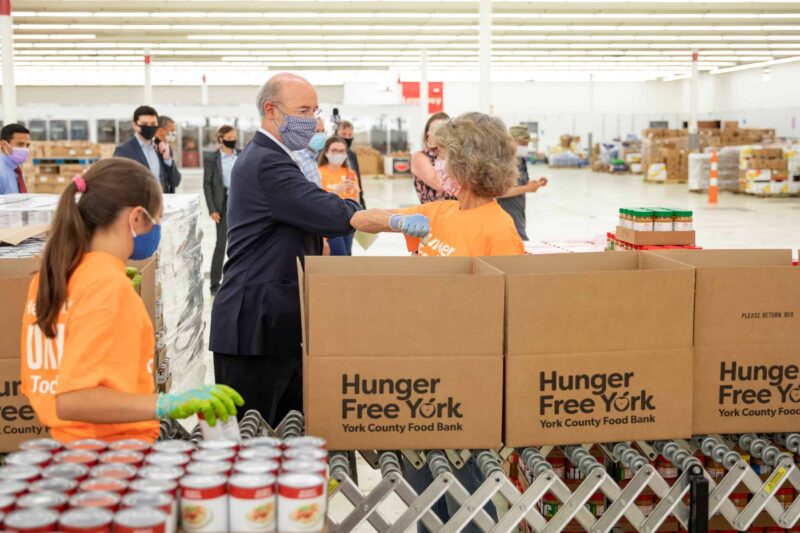Reporter and food bank volunteer Chris Costanzo started Food Bank News, a recipient of Internews’ Rapid Response Fund, in 2019 with the goal of creating a community where those working in the charitable food system could gain access to news, information and resources to help them achieve the goal of eliminating hunger.
Food Bank News, which is based out of New Jersey in the US, is using the grant to cover COVID-19 from the perspective of food insecurity. This included hiring Feven Merid, a recent graduate of Columbia Journalism School as a summer intern.
“As a person of color, our intern has been particularly attuned to stories that reflect the struggles of vulnerable populations, including undocumented workers,” said Costanzo.
Getting the word out about migrant workers
Merid wrote a story, “Stealth Food Banks Serve the Undocumented,” that describes the various steps some food banks have taken to reach out to migrant workers in the U.S., a population that has been especially hard hit by the coronavirus because most do not qualify for unemployment benefits.
The story was picked up in its entirety by The Counter (formerly The New Food Economy) and also linked to by FERN’s Ag Insider and newsletters from WhyHunger, NYC Food Policy Watch and Solutions Journalism Network. “We are hoping this broad exposure will inspire others in the hunger relief community to consider the plight of undocumented workers when plotting their hunger-relief strategies,” said Costanzo.
Expanding coverage of COVID-19 and food insecurity
In addition, with the funds from Internews, Food Bank News was able to hire numerous freelancers to help with their ongoing coverage of COVID-19 and food insecurity, allowing them to increase the frequency of their newsletter to twice-monthly. A sampling of the stories include:
- The benefits of forging deep ties between farms and food banks, to increase the resiliency of food systems in the face of broad disruptions to the food supply chain during COVID-19.
- The important role that mobile SNAP (food stamps) can play in helping vulnerable populations take advantage of federal benefits during the crisis.
- The use of route-planning software to increase the ability of food banks to reach homebound seniors and immuno-compromised individuals with home deliveries of food.
- The importance of helping newcomers to charitable food navigate the system through text-based services and hotlines, given that 40% of those being served by food banks during COVID-19 are new to food assistance.
- The benefits of virtual food drives in helping people maintain safe distances while still participating in much-needed food drives.
The pandemic crisis is also an information crisis, and journalists are the first responders. In an emergency, information saves lives. Hear from more journalists and information providers, as they grapple to stay operational and report on the crisis.
(Banner photo: Governor Wolfe visits Pennsylvania food banks. Credit: Governor Tom Wolfe/Flickr/CC)
